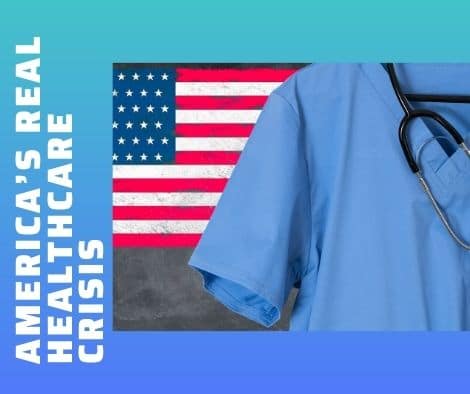America’s Real Healthcare Crisis – Atlantic International University
August 25, 2022 2023-09-18 21:18America’s Real Healthcare Crisis – Atlantic International University
Correctional Healthcare is a multi billion dollar industry and vastly becoming an economic staple in the United States. With the incarceration rate reaching an all time high in this country, the demand for comprehensive healthcare for individuals behind bars is quickly becoming the “new normal.” This demand creates an enormous financial advantage for healthcare providers who specialize in correctional medicine. The problem with this scheme is that because most of the healthcare providers are profit based, the consumers (jails and prison administrators) can find themselves caught in a web of litigation and wrongful death actions alike. In my career span over the past 25 years, I have seen excellent care and not so excellent care given to inmates. Most people believe (myself included), that the lack of compassion for incarcerated patients is directly attached to the profit based company’s desire to earn more revenue. In essence, the money only motivates the providers to garner more contracts which leaves less room to care about the patients being treated, thereby leaving a trail of inmates whose healthcare needs go un-noticed and underserved. I have not always been a fan of the profit based scheme for correctional healthcare and feel that it should be mirrored to have the same effect as a medicaid and medicare for those who are not incarcerated. Demographically inmates may not have changed in terms of their race and socioeconomic status, but their healthcare needs have. The residual effects of the opioid epidemic has dramatically increased the prison population in this Nation, and those who are abusing opioid substances are commonly diagnosed with HIV/AIDS and Hepatitis C, not to mention the often complicated and costly task of providing detox therapy to this population. There is no doubt that there indeed exists a dire and desperate need for correctional healthcare reform and how individuals who are incarcerated receive their care, the problem is most people do not want to “rock the proverbial boat” discussing a healthcare plan which focuses on evidence based care at the Government’s expense, especially for those who are incarcerated. I could see how this could present itself as a touchy subject for the profit based companies who make their millions off of the backs of the indigent and incarcerated. Somehow I have a feeling that when things take a drastic turn for the worse, we will all wish that we came up with a better and stronger plan that works for everyone, and while correctional healthcare costs have become increasingly inflated, it is at least this authors belief that when the time truly presents it self for correctional healthcare reform, the cost will be even more astronomical.
























